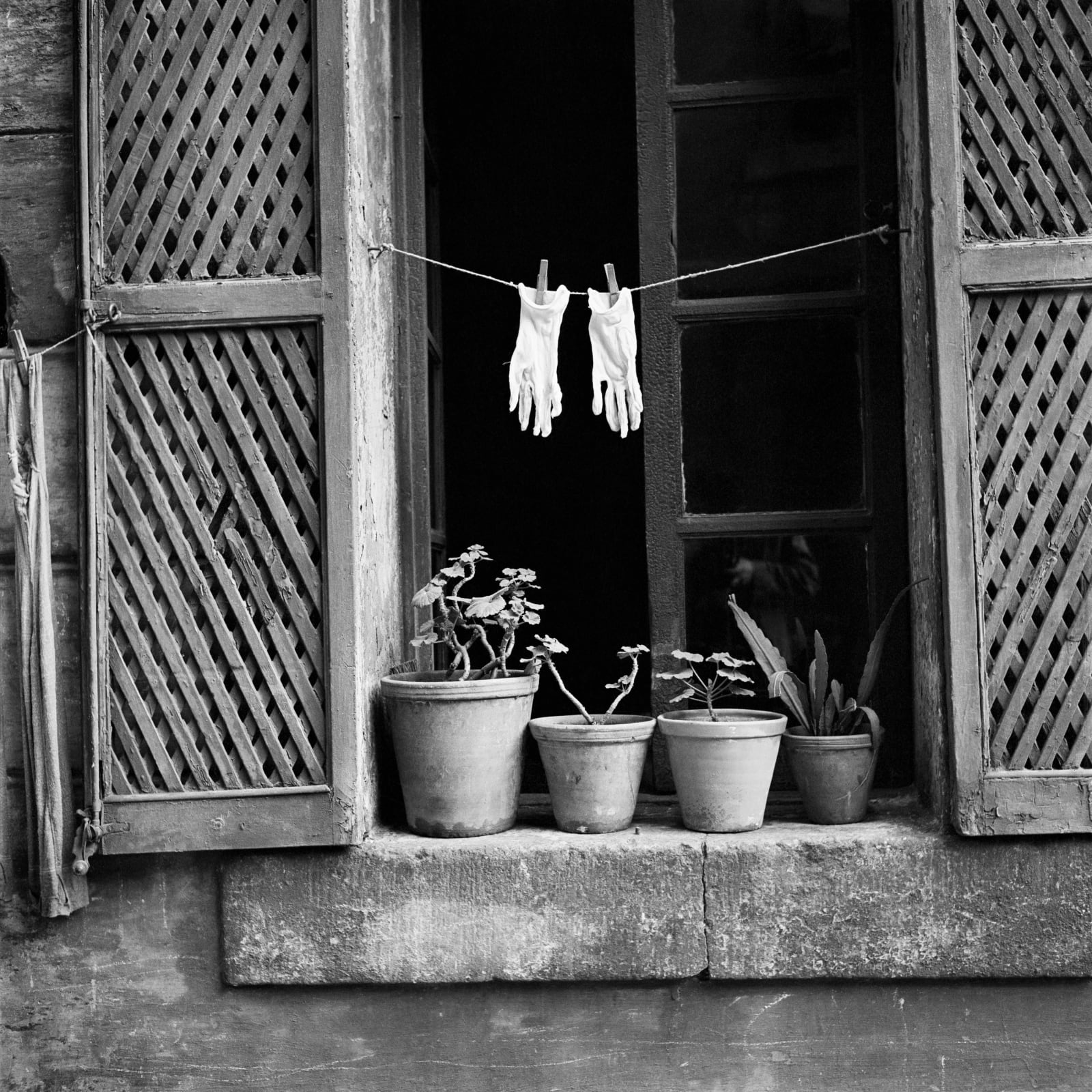
Ramón Masats Spanish, 17/03/1931-4/03/2024
Printed later.
.
Paper: 50 x 40 cm / 19 3/4 x 15 3/4 in
.
The latticed window frames divide light into diamonds of shadow and clarity, creating a geometric stage where Ramón Masats transforms the ordinary into profound visual narrative. Two white gloves hang suspended on a simple clothesline, their pristine forms elevated to silent protagonists in this meditation on post-war Spanish domesticity.
At twenty-two, Masats already possessed the visual intelligence that would revolutionize Spanish photography. This early masterpiece reveals his extraordinary ability to discover compelling stories within mundane moments, transcending mere documentation to create art that resonates with universal themes of absence, care, and human presence.
The composition speaks eloquently of invisible lives. These carefully hung gloves suggest the phantom hands that wore them—perhaps belonging to a woman navigating domestic rituals in Franco's rigidly structured society. The potted plants arranged below create organic counterpoint to architectural severity, their tender presence reinforcing themes of cultivation and life's persistent hope.
Masats belonged to a generation rejecting Spanish photography's pictorialist traditions, embracing instead direct, unvarnished documentation of national reality.
His 1950s work captured Spain in delicate transition—emerging from civil war devastation yet constrained by authoritarian rule. This photograph embodies that tension between confinement and aspiration.
The technical mastery is evident: precise light-shadow balance, rhythmic interplay between geometric and organic elements reveal why Masats became central to Spain's photographic renaissance.
His genius lay in finding the extraordinary within the everyday, transforming simple domestic scenes into profound meditations on Spanish identity that transcended national boundaries.